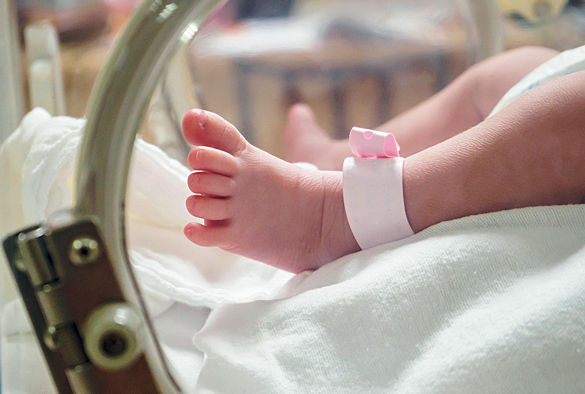
The University of Liverpool has signed a collaborative research agreement with the Global Antibiotic Research and Development Partnership (GARDP) in a bid to develop new treatment options for newborns with sepsis. The research seeks to explore the correct dose and frequency of potential antibiotic combinations that could improve treatment outcomes in this vulnerable population.
Antimicrobial resistance (AMR) is a major global public health challenge that is making previously easy to treat infections harder to treat, and the cause of an estimated 700,000 deaths per year. The death of newborns now represents 44 percent of all deaths in children under the age of five. Of great concern is the estimated 214,000 deaths in newborns per year attributable to drug-resistant infections.
Bacterial infections are exacerbated in vulnerable groups, such as newborns, as their immune systems are not fully developed. Sepsis, the body’s response to infection, can be life-threatening and in some parts of the world standard regimens are rendered ineffective by resistance to antibiotics.
Antibiotic pharmacodynamics is the branch of pharmacology that examines the drug dose required to eradicate bacteria and is a regulatory requirement for the development of antibiotic treatments. This research agreement aims to evaluate and validate the effectiveness of antibiotic combinations based on pharmacokinetic/pharmacodynamic principles, and to translate those results into a treatment that could benefit newborns with sepsis.
This agreement means researchers from the University’s Institute of Translational Medicine, led by Professor William Hope and Dr Christopher Darlow, will join GARDP’s growing number of partnerships to develop new antibiotic combinations to treat newborns with sepsis.
GARDP, is a joint initiative of Drugs for Neglected Diseases initiative (DNDi) and the World Health Organization (WHO), which aims to develop new treatments for serious Gram-negative bacterial infections where drug resistance is present or emerging, or for which inadequate treatment exists.
The research is also supported by the University’s Centre for Antimicrobial Pharmacodynamics (CAP).
Of the award Professor Hope, said: “This agreement will help identify new treatment options for newborns affected by AMR. Currently many of these babies die unnecessarily because of the absence of effective drugs”.
Seamus O’Brien, GARDP’s R&D Director, said: “Newborns urgently require effective treatments that are adapted for their use. We’re hoping that through this research collaboration, we will generate data to realize our ambition to develop new treatment options for newborns with sepsis – a priority areas of focus for GARDP.”
For more information about The Global Antibiotic Research & Development Partnership please visit www.gardp.org
For more information about the University’s Centre for Centre for Antimicrobial Pharmacodynamics please visit www.liverpool.ac.uk/apt